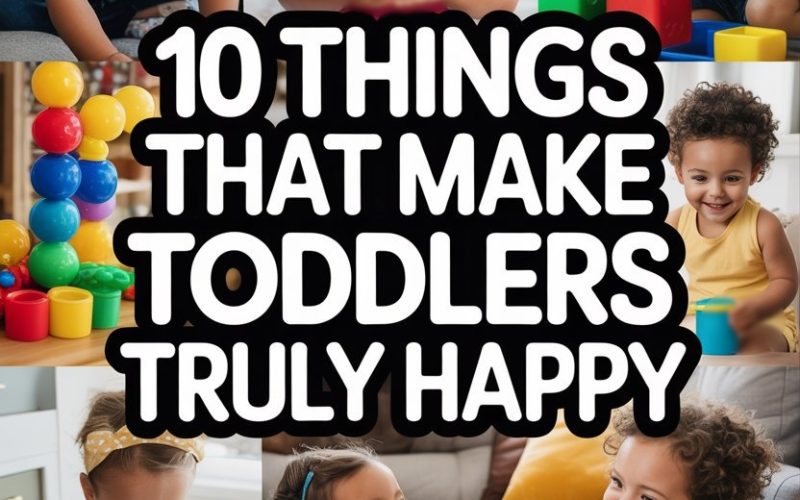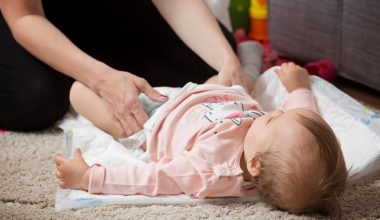Raising a toddler is a little like living with an adorable, pint-sized dictator: their needs are urgent, their opinions are strong, and peace can be shattered by the wrong colour cup.
Yet, it’s possible—miraculously—to tap into those pure moments of toddler joy. Here’s what genuinely lights up their days. (Spoiler: it’s not the expensive ride-on toy gathering dust in the garage.)
1. Messy Play Wins Every Time
There’s a reason why every toddler art session looks as if a paint bomb exploded.
Sensory play—think finger painting, squishing playdough, or splashing in puddles—lights up their brains and helps with emotional regulation.
Child development experts say sensory play is essential for brain growth and fine motor skills.
Try this: Fill a shallow tray with a bit of water, add plastic spoons and some food colouring, and let them go wild. Sure, you’ll mop up later, but that giggle? Priceless.
2. Routine That Feels Like a Cozy Blanket
Toddlers aren’t known for their go-with-the-flow attitudes. Predictable routines help them feel safe and in control, which can mean fewer meltdowns for everyone involved.
Whether it’s the nightly bath-book-bed ritual or just pancakes every Saturday, routines give toddlers a sense of stability in a world that often feels baffling.
If your little one is melting down at the drop of a hat, try anchoring your day with a few predictable activities. It’s not magic, but it’s the next best thing.
3. Silly Songs and Dancing (Even Off-Key)
Toddlers don’t care if you sound like a frog in a blender. Singing and dancing together releases happy chemicals like dopamine and oxytocin—the same stuff that makes adults smile at a favourite tune.
Music therapists have known for ages that singing helps with language development and emotional bonding.
Ask Alexa (or your own dulcet tones) for a round of ‘The Wheels on the Bus’ and do the actions, no matter how daft you feel. Bonus points for dramatic twirls.
4. The Magic of Being Helpful
Toddlers may be chaos gremlins, but they love to be ‘big helpers’. Letting them pour the milk, feed the dog, or ‘fold’ laundry builds self-esteem and teaches independence.
Parenting research shows that children who are given real responsibilities see themselves as capable and valued.
Yes, you may find a wet sock in the fridge. That’s part of the charm.
5. Nature and the Great Outdoors
There’s something about a muddy puddle or a pile of crunchy leaves that speaks directly to a toddler’s soul. Fresh air, open space, and the thrill of spotting bugs or collecting rocks provides endless entertainment (and a decent nap later).
Studies have linked outdoor play with better sleep, improved mood, and even stronger immune systems.
No need for a fancy park. Even a small garden or the local footpath will do. Just don’t forget the wellies.
6. Independent Play (But Not Too Far Away)
A common misconception: toddlers need constant entertainment. Truth is, small windows of solo play—blocks, dolls, a basket of random kitchen spoons—allow them to flex their imagination and problem-solving skills.
Early childhood experts recommend letting children lead the play while staying nearby for reassurance.
Sit on the floor with a cup of tea and let them take the reins. You might even get a few sips before someone needs rescuing from a blanket fort.
7. Stories and Cuddles
The combination of a familiar story and a warm lap is unbeatable. Reading to toddlers not only boosts language skills but creates powerful emotional connections, according to pediatric recommendations.
Keep a basket of well-loved books within reach and don’t worry if you have to read ‘Where’s Spot?’ for the 900th time. There’s comfort in repetition—and in knowing exactly where Spot is hiding.
8. New Experiences (On Their Terms)
Toddlers are born scientists, eager to taste, touch, and test. Introducing small, manageable new experiences—like baking muffins, watering plants, or visiting a new playground—gives them a sense of adventure and mastery.
Developmental psychologists agree that these moments, when low-pressure, help little ones gain confidence and resilience.
Don’t be surprised if they demand the exact same muffin-baking tomorrow. New doesn’t always mean once.
9. Good Food (And the Odd Treat)
Few things make a toddler happier than a snack they can eat with their own hands. Finger foods, fruit cut into silly shapes, and the occasional biscuit bring immense joy.
Dietitians recommend offering variety but sticking with familiar favourites when the mood is fragile.
Presentation matters: a sandwich cut into triangles can make you a hero. Bonus points for letting them ‘help’ prepare it.
10.Laughs With Their Favourite People
Above all, toddlers crave connection. Belly laughs with parents or carers, silly games, and plain old goofiness fill up their emotional tanks.
Child psychologists note that humour helps toddlers learn social skills and cope with stress.
Tickle fights. Peekaboo. Making faces in the mirror. If it gets a giggle, you’re doing it right.
The Secret Ingredient: You
No gadget, no viral parenting hack, no £200 balance bike beats the power of your attention and warmth. Toddlers are happiest when they feel loved, safe, and seen—even if that means you’re singing ‘Baby Shark’ for the millionth time.
It’s messy, loud, and sometimes baffling. But those sticky smiles and sleepy cuddles? Worth every crumb in the sofa.




